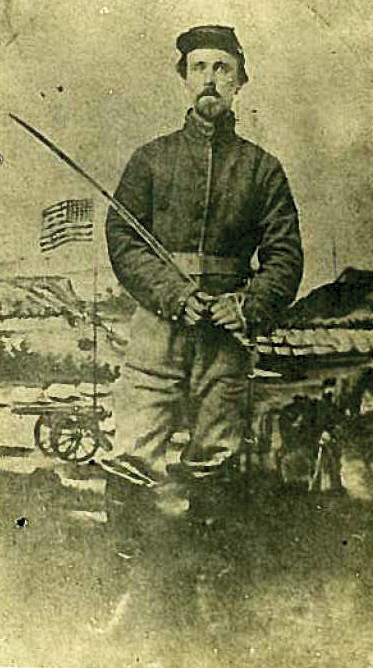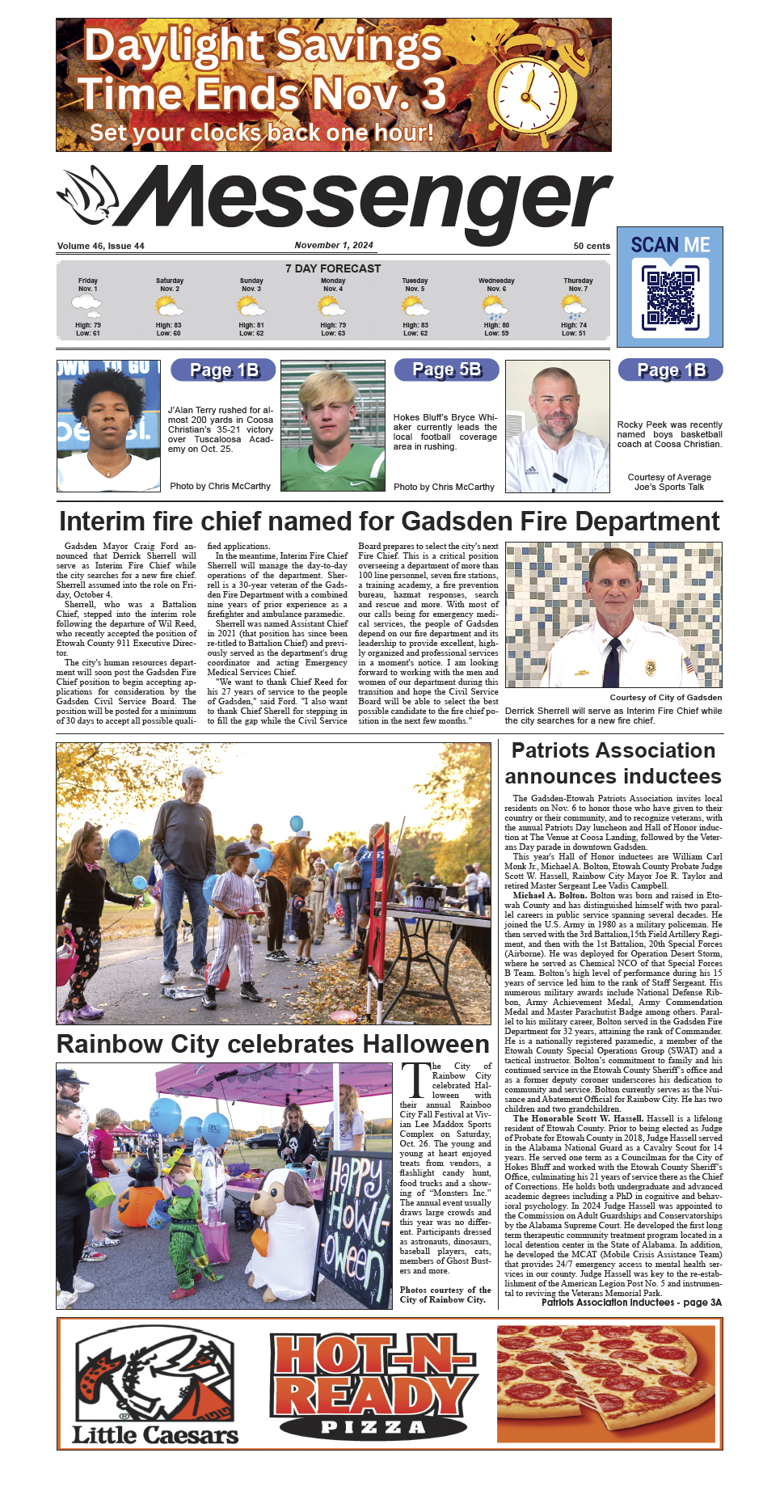By Craig Scott
“Dad, where do we come from?”
That question was asked by my son Alexander in 2008, not long after I started my job at the Gadsden Public Library. I’m glad Alex was curious enough, because it started us on a great adventure, now almost 13 years in the making.
I told Alex that back then, with a last name like Scott, we’d better come from Scotland.
It turns out that we did.
I recalled my grandfather Andrew Scott telling me about our family dating back a few generations when I asked him in 1969 as part of a school project. Grandpa Andrew had given me a picture of a Civil War soldier and said it was his own mother’s father, a man named Alexander McChesney, who would be my third great-grandfather and Alex’s fourth. Fortunately, I saved that picture and was able to show it to Alex.
Although it was an old and worn image, Alex and I agreed it was a cool picture. Obvious to us, McChesney had been a Yankee because he was posed in front of a cannon with an American flag in the background and he was holding a sword. But that was all we knew. It was kind of interesting to know that one of our ancestors played a role during the “War Between the States,” but that was the extent of it until we began the hunt into our family genealogy.
Using resources available at the library including Ancestry (Library Edition) and other online resources like FamilySearch (from the Church of Jesus Christ of Latter Day Saints), we started to track McChesney. We quickly learned that he was from a very poor family in Scotland and arrived in this country from Glasgow in 1863. He joined the 1st Michigan Cavalry Regiment as a private and enlisted in Company C. But why Michigan, and why had McChesney traveled from Scotland across the Atlantic Ocean with hardly any money or property to his name?
Most likely from our research, it appears McChesney had been recruited in Scotland to come to this country and was paid a $300 bounty to take the place of someone else who did not want to fight. That person must have been from Michigan because we have found no other Michigan connections in our family. After a bit more research, we learned the 1st along with the 5th, 6th and 7th Cavalry Regiments were, together, known as the Michigan Brigade or Wolverines. The Wolverine Brigade was commanded by Brigadier General George Armstrong Custer.
As Alex and I dug further, we became more and more intrigued knowing we had a grandfather riding with Custer in well-known Civil War battles such as the Wilderness, Cold Harbor, Sheridan’s Shenandoah Valley Campaign. McChesney was also present at the surrender of Lee to Grant at Appomattox Courthouse in Virginia.
Alex, who lives near Philadelphia, Pennsylvania decided to make a day trip to the National Archives in Washington where all the military records of the Civil War are stored. With help from the National Archives curators, what he found was completely amazing. Alex was presented with over 50 pages of McChesney’s war records including his enlistment paper dated October 30, 1863 (signed with his “X” since he could not read or write).
We also learned from the records that just two months after enlisting, McChesney had been arrested for being absent from his regiment for missing one day. As a result, he was fined $30. The fine was collected in $1 increments each month thereafter when McChesney was paid for his service. But, why had he gone AWOL and just for a single day? That still remains a mystery that perhaps we’ll solve some other day.
From McChesney’s military records, we found he had been admitted to Carver Hospital in June of 1864 in Washington. The hospital was located just 16 blocks from the White House where Lincoln resided. Carver was one of 16 hospitals in the immediate Washington area taking care of all the wounded and sick men from the war. McChesney remained in Carver for 3 months, recovered and then returned to the Wolverine Brigade in late September of 1864 with a new rank of corporal.
Knowing Custer and the Michigan Brigade had been involved with Lee’s surrender in April of 1865, Alex contacted the National Park Service at Appomattox and learned there was a “Wall of Honor” dedicated to all men from both the North and South who had fought there and who also had documented proof they were with one of the units at the surrender. Thanks to Alex’s work at the National Archives along with all the excellent resources available at the Gadsden Public Library, we had the proof we needed. Today, our Grandfather McChesney’s picture proudly hangs on the Wall of Honor at Appomattox along with all the other Confederate and Yankee heroes.
So, if you haven’t … then one day, ask yourself (or maybe one of your children or grandchildren will ask you themselves) … where do we come from? Try the Gadsden Public Library. GPL can help answer that question and get you started on your own family adventure.




